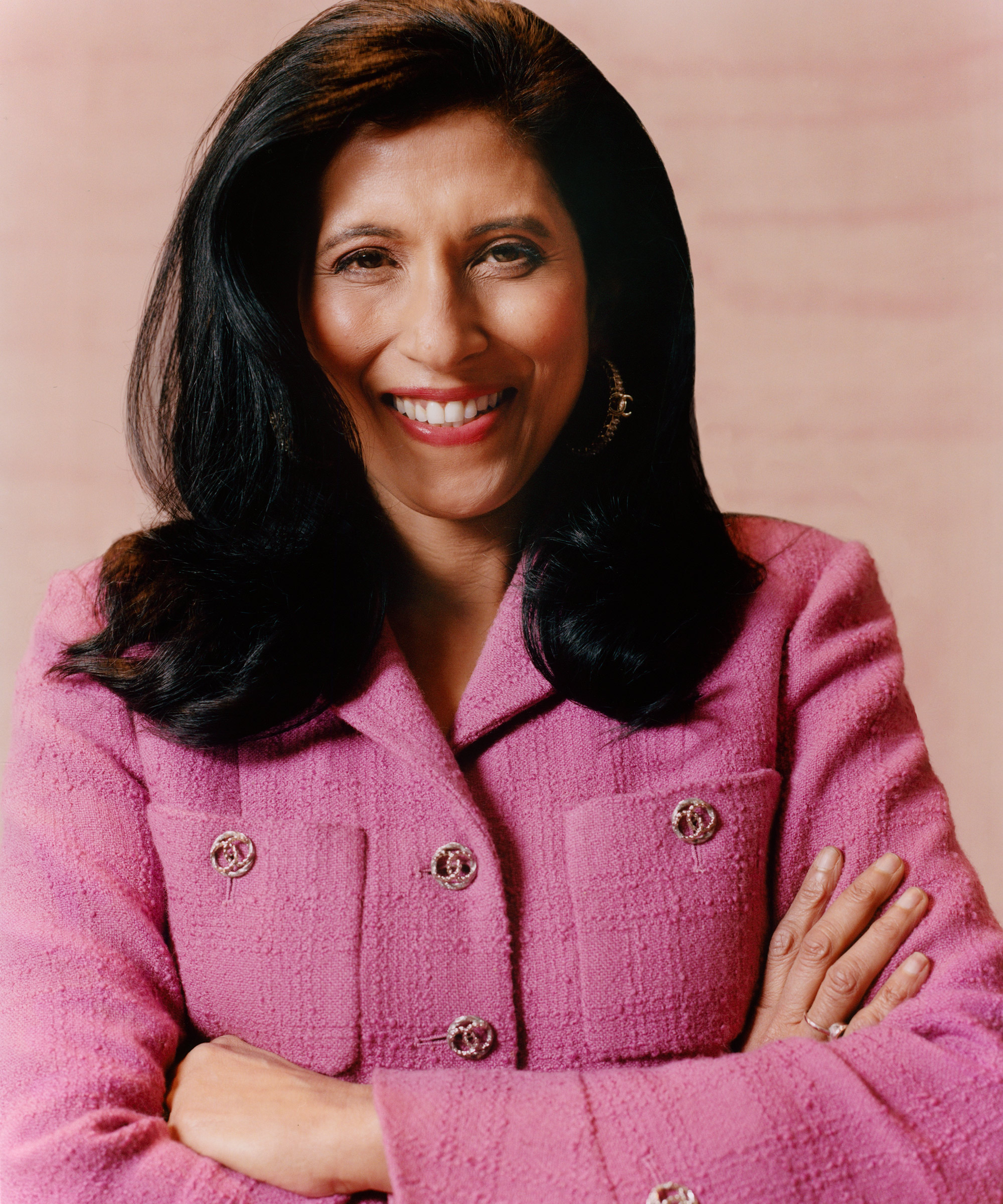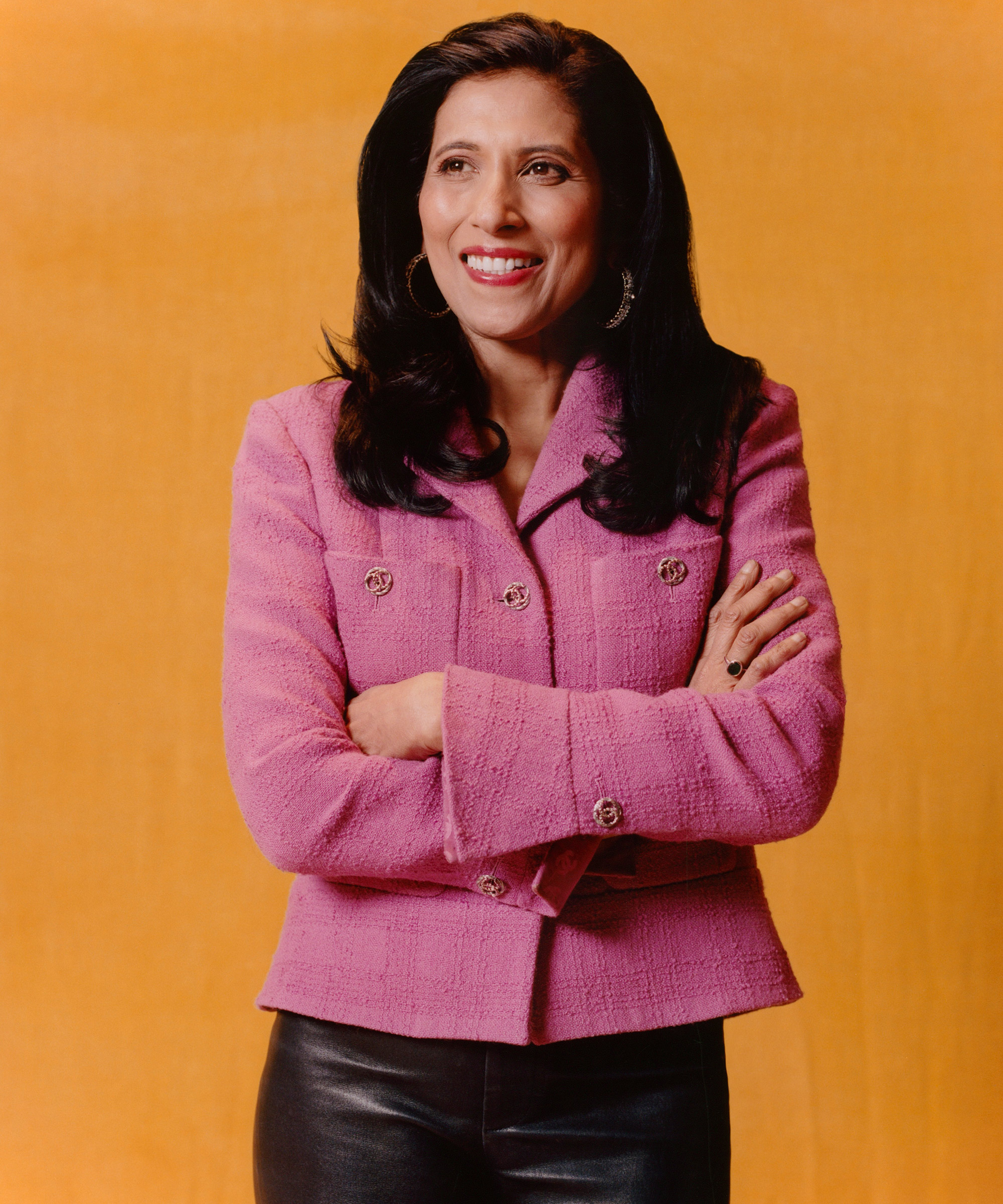For all the talk of promoting and valuing women in businesses, there’s been depressingly little progress in boardrooms and C-suites in the past few years. One notable exception is Leena Nair, who became global CEO of Chanel in January 2022. An outsider to the fashion world, Nair is hoping to pioneer a different kind of leadership—one that celebrates compassion, empathy, and kindness.
“It’s a great time to show that the days of the superhero leader are behind us,” says Nair, who grew up in rural India and now lives in London. “I have always believed in the collective voice, in diverse perspectives; if I sit in a meeting, I want to listen to every voice around the table, not just the dominant ones.”
It may be a surprising approach from the CEO of a luxury brand known for purses that sell for thousands of dollars, but Nair, 54, has proved throughout her career that she can succeed while still doing good for employees—and the world. She spent 30 years at consumer packaged-goods giant Unilever, nearly six of them as the head of human resources, where she increased the share of female managers from 38% to 50% and helped the company become known for its socially conscious initiatives. (“You have to make it a business priority like any other, which means you have to set targets and hold people accountable,” she says, about how she achieved gender parity at Unilever.)
More than 60% of management positions at Chanel are held by women, which she argues positions the company to show the rest of the world what business can look like when women are in charge. “We’re putting people relations in the heart of everything we do, which can sometimes get crowded out in the AI world,” she says.

Putting people first doesn’t mean just Chanel employees; Nair increased the amount of funding for Fondation Chanel, the company’s charitable arm, to $100 million from $20 million when she took the CEO role. It’s now one of the largest philanthropic organizations in the world working for the empowerment of women and girls. The nonprofit partners with local organizations in 57 countries, working on projects like supporting unmarried women in Korea, helping women plant mangrove trees in India, and bolstering affordable care in the U.S. “We really believe that when women thrive, the world thrives,” she says.
Though few of Nair’s female relatives had pursued careers or higher education, she was determined to go to university to study technology and engineering. And she’s grown used to breaking barriers: in the 1990s, as a young executive, she was the only woman working at a Unilever factory in Chennai, India—such a rarity that buses would stop at the gate of the estate so that workers could see her. “I was once upon a time somebody dreaming to have resources and opportunities and the ability to have a voice in the world,” she says. “It’s so gratifying to be able to work with a team to do that for millions of women.”
- Caitlin Clark Is TIME's 2024 Athlete of the Year
- Where Trump 2.0 Will Differ From 1.0
- Is Intermittent Fasting Good or Bad for You?
- The 100 Must-Read Books of 2024
- Column: If Optimism Feels Ridiculous Now, Try Hope
- The Future of Climate Action Is Trade Policy
- FX’s Say Nothing Is the Must-Watch Political Thriller of 2024
- Merle Bombardieri Is Helping People Make the Baby Decision
